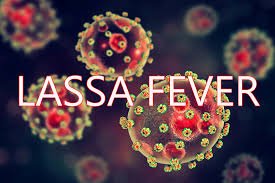In response to the recent outbreak of Lassa fever in Nigeria, the Nigerian government has launched a national policy to eliminate disease-carrying vectors, specifically rats.
Known as the national deratization framework, the exercise is geared toward the prevention and control of the spread of Lassa fever, a viral hemorrhagic disease transmitted by rats.
The Minister of State for Environment, Dr. Iziaq Adekunle Salako, announced the initiative on Wednesday while giving an update on the recent outbreak of Lassa fever reported by the 44 Army Referral Hospital in Kaduna State and its subsequent spread in the state.
The minister, who was represented by the Permanent Secretary of the Federal Ministry of Environment, Mahmud Kambari, said the meeting with the State Emergency Response Team (SERT) had provided the etiological pattern of the disease.
“Twelve suspected cases were recorded with six mortality, two additional cases originated from another facility in Barau Dikko Hospital, while 92 persons are under surveillance as contact persons,” he said.
He added that the team had visited the affected facility on Feb. 25 and gathered information on the general hygiene and cleanliness of the hospital, the measures put in place to prevent the spread of the disease through disinfection and decontamination, and the efficacy of the treatment by using an ITP machine and sodium hydrochloride.
“The team recommended that the facility be deratized to reduce the population of the disease-carrying vector, specifically rats,” he said.
He noted that the environment sector was to provide solutions and make the environment safe and unconducive for the vector to grow because it was responsible for the disease.
The Registrar of the Environmental Health Council of Nigeria (EHCON), Dr. Yakubu Baba Muhammad, reiterated that the minister’s directives on all the facilities, whether public or private, should undergo deratization exercise, for example, hotels, markets, restaurants and recreation centres, after which they would be issued Deratization Exemption Certificates by EHCON.
Yakubu disclosed that the ministry had directed the council to embark on massive capacity building to update the knowledge of the practitioners on the new innovations and approaches to control and address the disease.
He added that the component of health education, promotion and creation of awareness in the communities also played an important role.
“At the community level, the issue of waste management cannot be overemphasised. At this time and period, remnant food should not be exposed, while our foodstuff and stores should be rat-proof. In the character of rats, once there is no food, rats vacate the house,” he said.
Yakubu also warned that farmers using roads for drying farm products should be discouraged from doing so, “because this allowed rats to come and urinate and defecate, which contained the virus that caused the disease and contamination of the food.”
“Communities should reduce or stop taking bush meat because it is not healthy for now. The virus has residual effects even after the death of the animal,” he added.
Lassa fever is an acute viral infection that is transmitted to humans through contact with food or household items contaminated by the urine or faeces of infected rats. The disease can also spread from person to person through contact with the blood, urine, faeces, or other bodily fluids of an infected person.
According to the World Health Organization (WHO), the symptoms of Lassa fever include fever, headache, sore throat, general weakness, nausea, vomiting, diarrhoea, abdominal pain, and bleeding from the mouth, nose, vagina or gastrointestinal tract. The disease can cause severe complications such as deafness, seizures, shock, organ failure, and death.
The WHO estimates that Lassa fever causes about 300,000 infections and 5,000 deaths annually in West Africa. There is no vaccine for the disease, but it can be prevented by avoiding contact with rats and practising good hygiene. The disease can be treated with antiviral drugs if diagnosed early.


























